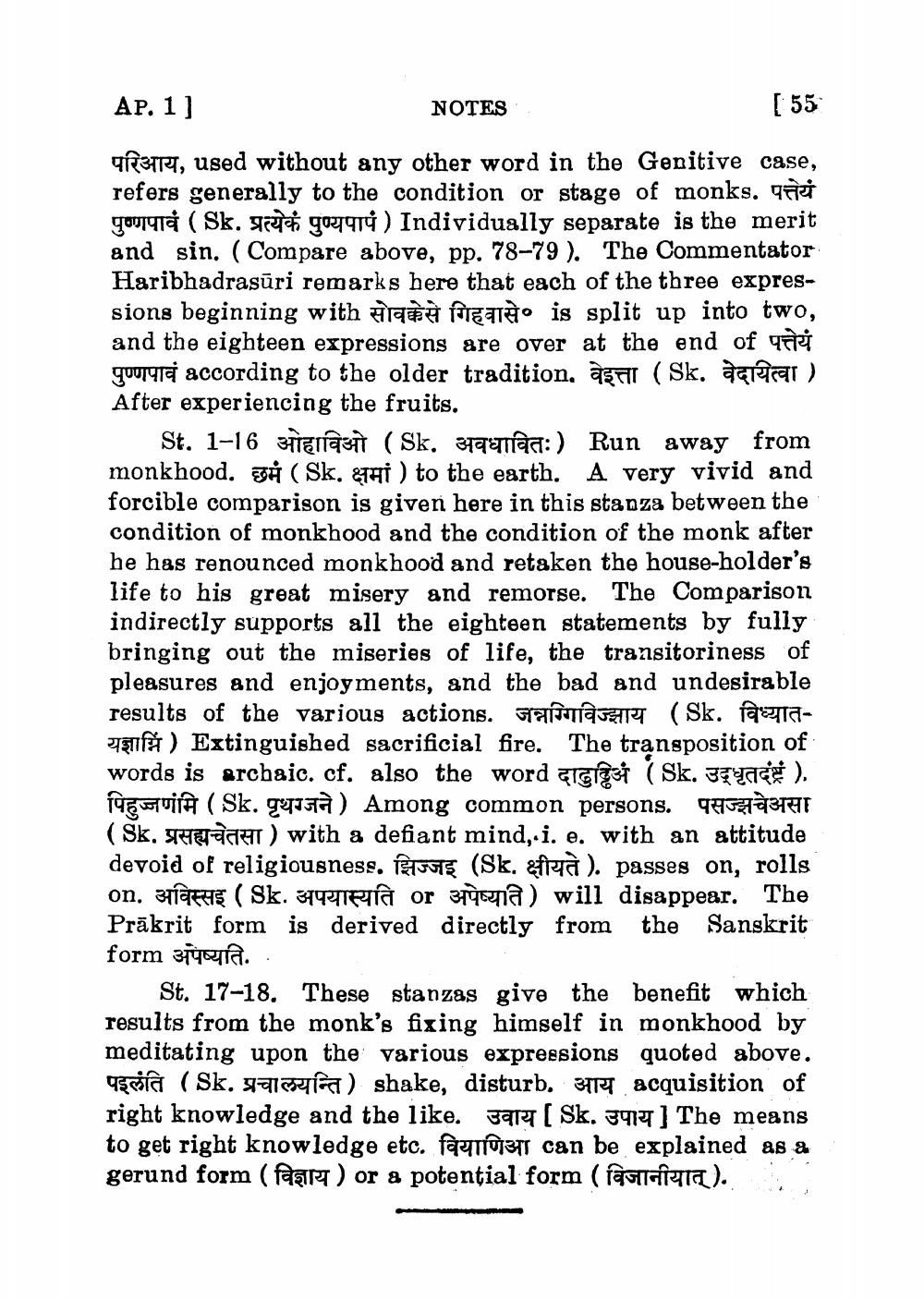________________
AP. 1]
NOTES
[ 55
R3111, used without any other word in the Genitive case, refers generally to the condition or stage of monks. 9772 पुण्णपावं (Sk. प्रत्येकं पुण्यपापं) Individually separate is the merit and sin. (Compare above, pp. 78-79). The Commentator Haribhadrasūri remarks here that each of the three expressions beginning with HTÀ PETIÈO is split up into two, and the eighteen expressions are over at the end of YTRI पुण्णपावं according to the older tradition. वेइत्ता (Sk. वेदायत्वा ) After experiencing the fruits.
St. 1-16 STEIGET (Sk. sala:) Run away from monkhood. h (Sk. 71 ) to the earth. A very vivid and forcible comparison is given here in this stanza between the condition of monkhood and the condition of the monk after he has renounced monkhood and retaken the house-holder's life to his great misery and remorse. The Comparison indirectly supports all the eighteen statements by fully bringing out the miseries of life, the transitoriness of pleasures and enjoyments, and the bad and undesirable results of the various actions. जन्नग्गिविज्झाय (Sk. विध्यातHETA ) Extinguished sacrificial fire. The transposition of words is erchaic. cf. also the word दाढढिअं (Sk. उद्धृतदंष्ट्रं ), पिहुज्जणमि (Sk. पृथग्जने) Among common persons. पसज्झचेअसा (Sk. area with a defiant mind,.i. e. with an attitude devoid of religiousness, ISTE (Sk, atra). passes on, rolls on. अविस्सइ (Sk. अपयास्यति or अपेष्यति) will disappear. The Prākrit form is derived directly from the Sanskrit form ipfa.
St. 17-18. These stanzas give the benefit which results from the monk's fixing himself in monkhood by meditating upon the various expressions quoted above. पइलंति (Sk. प्रचालयन्ति) shake, disturb. आय acquisition of right knowledge and the like. उवाय [ Sk. उपाय] The means to get right knowledge etc. fanŪSTT can be explained as a gerund form (विज्ञाय) or a potential form (विजानीयात् ).




